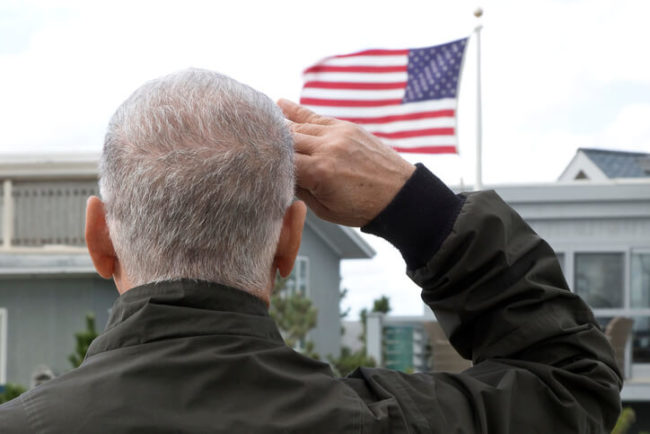Asbestos Exposure & the Military
For decades, many of the U.S. military’s bases, ships, and aircraft were composed of asbestos products. Asbestos, a naturally occurring mineral, is lightweight, durable, and heat-resistant, making it a seemingly ideal component of buildings, vehicles, and other assets.
Unfortunately, when asbestos fibers are inhaled, they can settle in the lining of the lungs, abdomen, or other organs. Over time these fibers can scar and damage the tissue, causing asbestos-related diseases such as mesothelioma and lung cancer.
 When these health hazards came to light in the late 1970s, the military began to phase out the use of asbestos products. For many veterans, though, the damage had already been done.
When these health hazards came to light in the late 1970s, the military began to phase out the use of asbestos products. For many veterans, though, the damage had already been done.
The U.S. military did not realize it was putting its service members at risk — but many asbestos product manufacturers did, and they hid these risks to boost their profits. That’s why so many veterans and their loved ones choose to hold these companies accountable for their negligence.
An Elevated Risk for U.S. Navy Veterans
Although all U.S. military veterans have an elevated risk of developing mesothelioma, U.S. Navy veterans are particularly vulnerable. That’s because asbestos was a key component in so many ships, shipyards, adhesives, boilers, paints, and pipes.
No matter what a sailor’s role was, they could potentially have been exposed to asbestos during their service.
Mesothelioma Compensation for Veterans
Fortunately, various forms of financial compensation may be available to help veterans with mesothelioma access care and afford treatment.
You may qualify for multiple types of mesothelioma compensation if you:
- Are a veteran of any U.S. military branch
- Were diagnosed with an asbestos-related disease like mesothelioma
Learn more about the types of compensation for veterans with mesothelioma below.
Mesothelioma VA Benefits
The U.S. Department of Veterans Affairs (VA) offers several types of compensation and other benefits to help veterans who were exposed to asbestos during their service and now suffer from mesothelioma or other asbestos-related issues.
Types of VA benefits may include:
- VA Health Care
- VA Disability Compensation
- VA Special Monthly Compensation (SMC)
- VA Pension
- Aid & Attendance (A&A)
- Housebound Benefits
Additional benefits may be available to family members on behalf of their loved one with mesothelioma.
By working with a VA-accredited mesothelioma lawyer, you can get help accessing your VA benefits and pursuing any other compensation you may qualify for — like from asbestos trust funds or legal claims.
Asbestos Trust Fund Claims
Companies that manufactured asbestos products and declared bankruptcy were required by courts to set aside money in trust funds for those harmed by exposure to asbestos fibers. Veterans and their families can file claims to access these funds in addition to seeking their VA benefits.
Filing a Mesothelioma Lawsuit
The dangers of asbestos were unknown to workers, service members, and the military. Many asbestos manufacturers, however, knew their products were harmful and concealed this information.
Mesothelioma lawsuits are filed against the companies that hid their products’ risks — not the federal government. Taking legal action will not have any effect on your VA benefits.
Get Help Accessing Mesothelioma Compensation
 Dealing with mesothelioma or other forms of asbestos-related cancers is hard enough. Veterans who were exposed to asbestos while serving the country shouldn’t also have to worry about figuring out how to access the benefits they earned and the compensation they now need.
Dealing with mesothelioma or other forms of asbestos-related cancers is hard enough. Veterans who were exposed to asbestos while serving the country shouldn’t also have to worry about figuring out how to access the benefits they earned and the compensation they now need.
With a free case review, we can help you determine your eligibility and put you in touch with resources that can let you focus on your or your loved one’s health — and let someone else handle the legal process.



